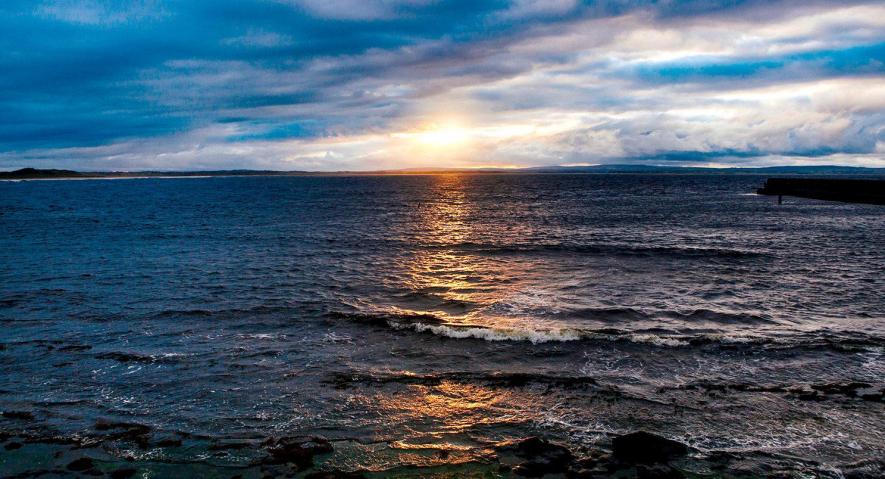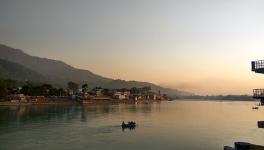Nature Minimises Damage to Earth’s Ocean Circulation System Caused by Climate Change

Image for representational use only.Image Courtesy : carbonbrief.org.
The health of world’s oceans is one of the important indices of measuring the global impact of anthropogenic climate change. One of the important indicators of the oceans’ health is ocean circulation. Ocean circulation keeps the oceans in motion which is pertinent for the marine lives and also keeping global climate in balance. But anthropogenic (man-made) climate changes have found to be involved in interfering in this circulation system, which in turn could have adverse impact on global climate.
The Atlantic meridional overturning circulation (AMOC) is such a circulatory system that is a crucial component of Earth’s climate system. Anthropogenic greenhouse warming has affected the AMOC and the tropical Indian ocean (TIO) as well. It has slowed down the AMOC while accelerated the TIO, carrying potential effects for both regional and global climates. But nature has its own capacity to manage it.
A recent study published in Nature Climate Change journal has predicted how the TIO could help in the AMOC slowdown. The AMOC, one of the Earth’s largest water circulation systems, has been found to have slowed down in the last 15 years. This fact has been established through data of last 15 years and computer modelling studies as well. Destabilisation of the AMOC would result in more harsh winters in Europe, more storms and drier Sahel (the ecoclimatic and biogeographic zone of transition in Africa between the Sahara to the north and the Sudanian Savanna to the south) in Africa, for example. The AMOC operates like a liquid escalator. It delivers warm water to the North Atlantic while sending cold water south towards the equator.
The study mostly focused on specific climate mechanisms and features that might be changing due to global warming. A combination of observational data and sophisticated computer modelling, that they applied in their study could help them assess what effect the changes would have in future global climate. Their focus on the warming of the Indian Ocean led them to find how this could balance the slowdown of the AMOC.
“The Indian Ocean is one of the fingerprints of global warming. Warming of the Indian Ocean is considered one of the most robust aspects of global warming,” said Hu, who is the first author of the study.
The sophisticated modelling revealed a series of cascading effects stretching from Indian Ocean all the way to the Atlantic. As the global warming turns the Indian Ocean warmer, it generates additional precipitations. This, in turn, would draw more air from other parts of the world including the Atlantic, towards the Indian Ocean.
This increased precipitation over the Indian Ocean would render the Atlantic deprived of precipitation, as more air is pulled towards Indian Ocean from the Atlantic. Less precipitation over the Atlantic will lead to more salinity of its water, specifically in the tropical portions of it. Again, the saltier the water becomes, more dense it is and heavier it becomes. Thus Atlantic water, as it comes north via the AMOC, will get cold much quicker than usual and as a result ice will be formed more easily. This icing would lead Atlantic water sink faster and when this happens, then this sunken water will make its movement towards the south.
Faster and easier movement of Atlantic water will compensate the slowdown of the AMOC and the circulation would be in place—the findings of the research predict.
Alexey Fyodor, the other author of the study says, “This would act as a jump-start for AMOC, intensifying the circulation. On the other hand, we don't know how long this enhanced Indian Ocean warming will continue. If other tropical oceans' warming, especially the Pacific, catches up with the Indian Ocean, the advantage for AMOC will stop."
The research once again reiterates the intricate and interconnected nature of the global climate. At a time when human activities have a profound effect over the global climate, finding the factors that affect the climate and how they behave is of much importance.
Get the latest reports & analysis with people's perspective on Protests, movements & deep analytical videos, discussions of the current affairs in your Telegram app. Subscribe to NewsClick's Telegram channel & get Real-Time updates on stories, as they get published on our website.
























